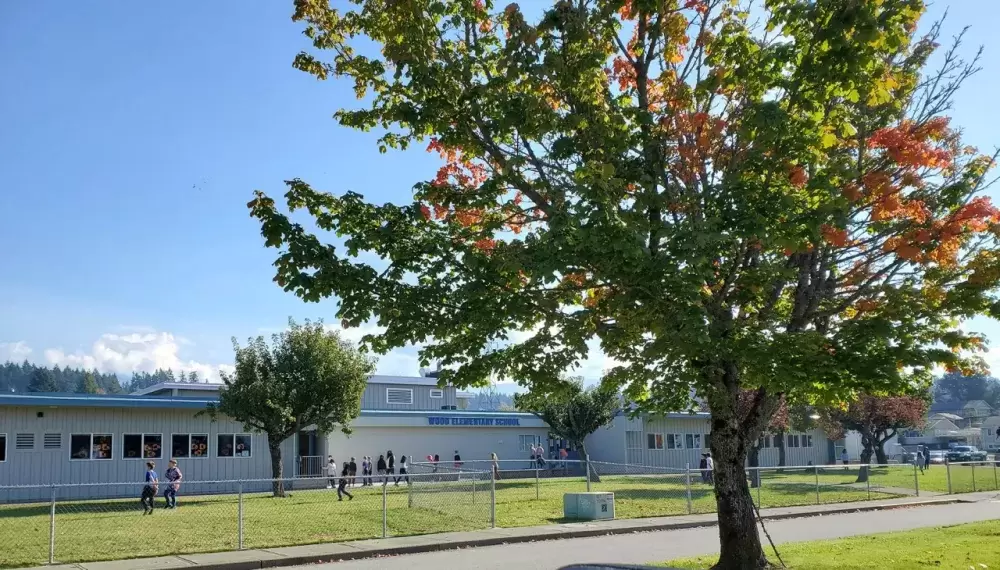A new study has found that COVID-19 will have significant consequences on children’s mental health. Researchers at Simon Fraser University are urging government to invest in the province’s youth mental health services system so that children’s symptoms don’t extend through to adulthood.
As the province went into lockdown in March, children were stripped from their friends, their recreational activities and their ability to move independently in the world. The result created layers of trauma and anxiety that are not effectively being addressed, said Tla-o-qui-aht First Nation education manager, Iris Frank.
“How would we have known that a pandemic would happen and change our world just like that?” she said. “This is all so huge and new.”
As Tla-o-qui-aht First Nation moved back to Stage One of their recovery plan at the beginning of November, additional layers of trauma were added, said Frank.
“We’re a gathering people,” she said. “We really value our culture and our history. Not being able to gather as an immediate family is a big cause of the stress.”
While the nation is aware of the added anxieties that COVID-19 has imposed on its youth, the inability to have in-person workshops and counselling sessions makes it difficult to address their specific needs.
With over 100 elementary students, spanning throughout Esowista, Ty-Histanis and Opitsaht, along with 40 high school students, Frank said “there is a real need to develop a strategic plan.”
“The nation is doing the best they can and adding resources to try and fill the gaps,” she said. “We have to learn how to work with technology to help our youth. How do you manoeuvre in a virtual world?”
The recent report, titled COVID-19 and the Impact on Children’s Mental Health, was released by Simon Fraser University’s Children’s Health Policy Centre and sponsored by the Office of the Representative for Children and Youth. It found that the pandemic might particularly affect Indigenous children, who disproportionately experience traumas associated to colonialism.
“Indigenous families and communities continue to demonstrate strength, innovation and resilience but they are also affected by historical and ongoing colonialism and experience many pre-existing adversities,” said Dr. Charlotte Waddell, director of the Children’s Health Policy Centre and report author. “These conditions are also recognized as putting children’s mental and physical health at risk. It will be important for policy-makers to note that COVID-19 may exacerbate these inequities and that working with Indigenous communities and leaders to address these harms will benefit child and youth mental health.”
Huu-ay-aht Councillor Edward R. Johnson echoed that sentiment and said that the pandemic has only heightened the traumas that First Nations communities are already faced with, spawning an increase in violence and addiction.
“Our youth are seeing and witnessing a lot of these things and it’s definitely taking a toll on our youth,” he said.
The report also warns that the mental health of parents and guardians needs to be considered. Economic losses due to COVID-19 have become prevalent and families who were in more precarious economic circumstances before the pandemic are faced with new challenges, said Waddell.
“We’ve had parents who have experienced loss of income,” said Frank. “That crippling anxiety in a household affects not only the children, but the parents too.”
The education manager said that parents are not “wired” to be teachers and that the added expectation has only compounded the stress and anxiety within the family unit.
Letitia Charleson attests that homeschooling her children in Port Alberni has been a “major adjustment.” The stay-at-home mother said she sympathizes with other parents who are working full-time and trying to juggle both.
“My biggest advice to parents is really be patient with yourself – be kind to yourself,” said Frank. “Don’t be so hard on yourself and equally so, [on] your children. Reinforce that this isn’t forever; it’s just for now. And it’s so we’re all safe when we come out of it.”
Rather than being prescriptive as to how government should implement services, Waddell said she hopes the report will help the “incoming government think about the kinds of public policies and investments they need to put into place in order to address the significant impact on children and youth.”
“What those services actually look like and how they are implemented within communities should be done in full consultation with communities,” she said. “There will be no ‘one size fits all’ solution; rather, services must be tailored to effectively serve community members.”







